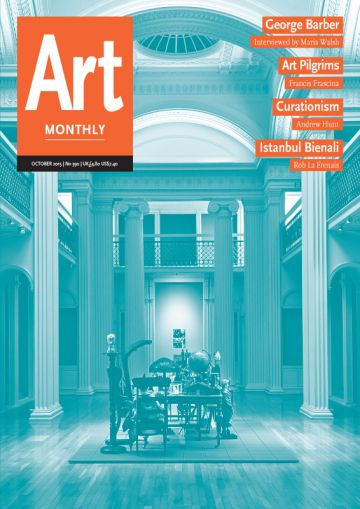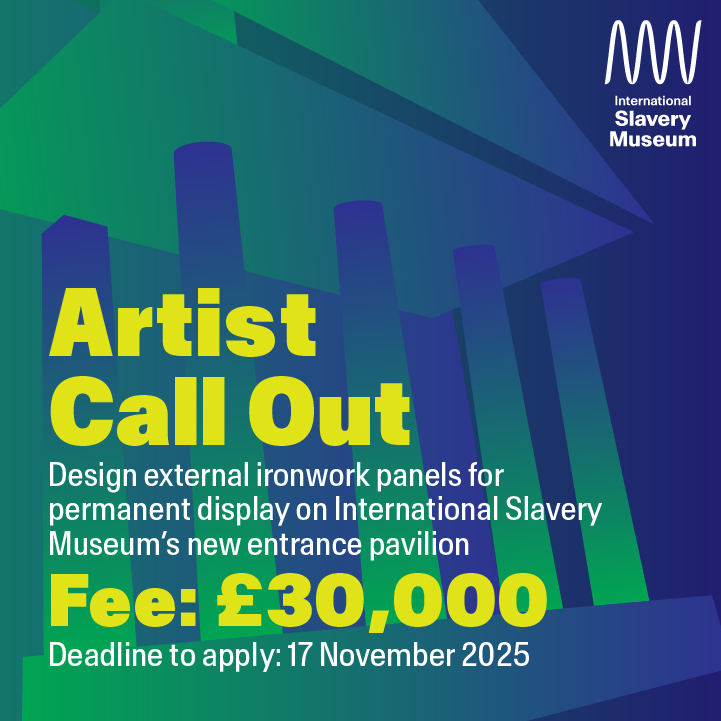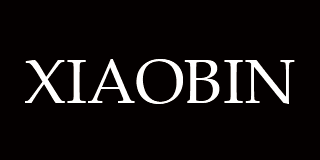Art Monthly 390
October 2015
George Barber
Interviewed by Maria Walsh
Art Pilgrims
Francis Frascina
Curationism
Andrew Hunt
Istanbul Bienali
Rob La Frenais
Buy Now – select:
Want to read this right now?
Get instant access to the entire back catalogue via Exact Editions from only £8.99!
Contents
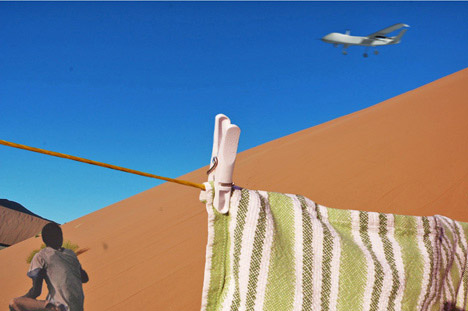
George Barber The Freestone Drone 2013 video
Interview
Shouting Match
George Barber interviewed by Maria Walsh
George Barber was known as a pioneer of 'Scratch' video art in the 1980s but has recently embraced issues-based video installations. Here he talks about his time at St Martins in the 1970s, his struggles with structuralist dogma, the loneliness of the viewer in today's art world, and the benefits of combining art with narrative.
'I think the times and the experience of time have changed – you can't make work like Chris Marker or take time like Jean-Luc Godard any more, people are a bit more fidgety.'
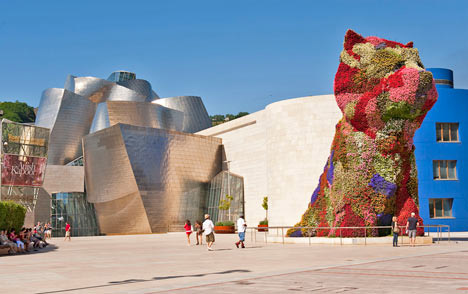
Jeff Koons Puppy 1992 installed at Guggenheim Bilbao
Feature
To be a Pilgrim
Francis Frascina takes the Camino of Culture
Thousands of spiritual pilgrims have journeyed along the northern coast of Spain for centuries, fulfilling the church's goal of reinforcing Christianity in the region after Charles the Great drove out the Muslim Moors. Are today's art pilgrims, who flock to Bilbao to visit the Guggenheim or the soon to open Botín Centre in Santander, not also reinforcing these powerful dynasties' market-driven view of art?
'One group of pilgrims, desiring use-value, search walls and pavements for the guiding symbol of the scallop shell, the traditional marker of their long Camino route. Another group, steeped in exchange-value, search for symbols to guide them to more immediate gratifications.'
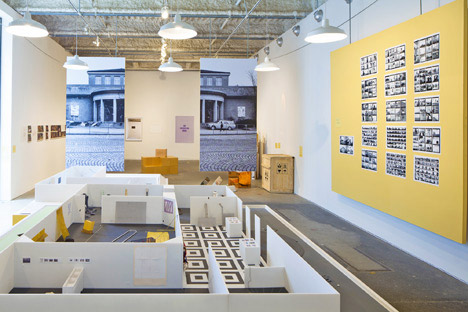
'When Attitudes Became Form Become Attitudes' 2012 CCA Wattis, San Francisco
Feature
Curator, Curation, Curationism
Andrew Hunt on the A to Z of curating
While the notion of curating has now entered everyday discourse, the large-scale exhibition-making institutions – museums and biennales – seem stymied by their need to bring in ever larger audiences. So does the recent spate of books on curating reveal a need to put the exhibition itself back at the heart of critical thinking?
'With fundraising the chief focus for senior management, debates at artistic-director and senior-curator level in the UK about testing the limits of "curating" and "the curatorial" have taken a back seat.'
From the Back Catalogue
The Co-dependent Curator Paul O'Neill on the dysfunctional relationship between independent curators and institutions
Comment
Editorial
Armageddon Deferred
Jeremy Corbyn's election as leader of the Labour Party has led not to the sky falling in, but a national plan for the arts inspired by the fact that it is 50 years since Labour's Jennie Lee produced the first and only white paper on the arts. So what is Corbyn's policy for the arts?
'Those in the arts have been given much to ponder and some reason for hope by Corbyn's arts policy document, his most coherent policy statement so far.'
Artnotes
Culture minister Ed Vaizey launches a narrowly defined white paper on the arts; a new survey reveals a further drop in local government support for the arts; Italy rings the changes in its museums; Anish Kapoor's Versailles struggles continue; protests continue at the National Gallery over privatisation and Tate Britain over sponsorship; the latest news on galleries, events, appointments, prizes and more.
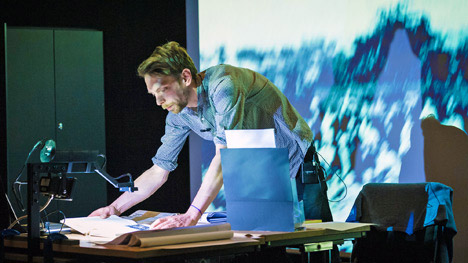
Jonathan Hoskins Recovery Position 2015 performance
Profile
Jonathan Hoskins
Chris Fite-Wassilak on the London-based artist's social practice
Jonathan Hoskins is part of a growing set of artists for whom direct social action, tempered by discussion and a consistent problematising of the issues at hand, is the work itself.
'For Hoskins, the word "community" implies a conceptual containment, a smoothing-over of the dissent, disparities and disagreements within what has been identified as a group; instead, he describes his central concern simply as "the problem of sharing a possible future".'
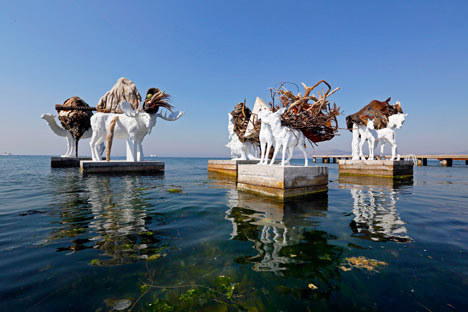
Adrián Villar Rojas The Most Beautiful of All Mothers 2015
14th Istanbul Bienali
Exhibitions
14th Istanbul Bienali: Saltwater – A Theory of Thought Forms
various venues
Rob La Frenais
Everyone is an Curator
The Minories Galleries, Colchester
Matthew Bowman
Paul Neagu: Palpable Sculpture
Henry Moore Institute, Leeds
David Briers
Agnes Martin
Tate Modern, London
Mark Prince
Michael Krebber
Maureen Paley, London
Neil Zakiewicz
Moyra Davey: You're a nice guy to let me hold you like this
Greengrassi, London
Kathryn Lloyd
Jenny Holzer: Softer Targets
Hauser & Wirth, Somerset
Paul Carey-Kent
Josh Kline: Freedom
Modern Art Oxford
David Trigg
Benedict Drew: KAPUT
QUAD, Derby
Tom Emery
London Round-up
MOT International • Assembly Point • Arcade
Martin Herbert
Edinburgh Round-up
Stills • The Fruitmarket Gallery • Talbot Rice Gallery
Catherine Spencer
Reviews
Books
Dave Beech: Art and Value – Art's Economic Exceptionalism in Classical, Neoclassical and Marxist Economics
Alex Fletcher finds art irreducible to commodity status
'Dave Beech contends that there is a peculiar convergence in the pronouncements by both mainstream economics and Marxist cultural analysis that "art is, always has been, or has recently become nothing but a commodity". Beech’s wager is that this assumed certainty of art's commodification is too often simply asserted rather than "sufficiently tested".'
Michael Craig-Martin: On Being an Artist
Gilda Williams can't help but recommend the artist's essays
'This is Craig-Martin at his best: astute, informed, telling art history as eyewitness. His words prompted my recollection – as an art critic in the 1980s – that the yBa's decaying cow heads and stinking kebabs spoke of a point-blank rejection of collector-chasing art in the painting-heavy decade, pursuing instead what Craig-Martin calls "a dynamic bond of mutual competitive support".'
Reports
Letter from St Petersburg
The Russian Ark
Brian Hatton on four attempts to surpass the city's imperial heritage
'The new Hermitage annex may be welcome, but is it a model for a future Mir Iskusstva in which art gets made and shown in different ways and places, replicas become virtually perfect, digital collections kept "in the cloud" and visited online?'
Letter from Sofía
Collage City
Jamie Sutcliffe finds an engaged public in Bulgaria
'Slaveykov’s fountain seemed to illustrate a broader public tendency to engage, reflect upon or contest Bulgarian histories, both personal and political, through the instrumentalisation of the sculptural memorial.'
Letter from North Norway
Disappearing Acts
Maeve Connolly visits the Lofoten International Art Festival
'"Disappearing Acts" addresses a moment in which we are "drowning in our own goo". This sticky stuff is a consequence of various forms of mining and refining, involving images as well as natural resources, with the Lofoten Islands framed as "a pictorial fantasy" where "image technology and geological form seem to perform each other".'
Artlaw
Artist's Resale Right
Global Thinking
Henry Lydiate on efforts to globalise droit de suite
'Artists' bargaining power in the global art ecosystem is weak or non-existent because the vast majority of artists operate as freelance solo practitioners and, unlike other creative artists, visual artists only occasionally collectivise to create common or shared interest groups or unions or associations to speak with a united voice to their industry bosses.'
Listings
Events
London Art Calendar
The updated events and exhibitions calendar can also be viewed online.
Exhibitions
Exhibition Listings
Art Monthly's exhibition listings can be viewed online.

